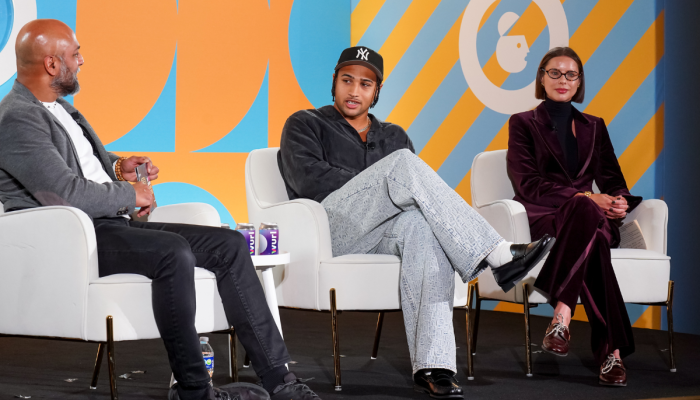We live in explosive times. It appears society has become even more polarised across more subject areas: Brexit, Trump, diversity and equality….
There are many contributing factors to this increasing tribalism. What is certain is that the rise in group identity, trumping that of individual merit, is damaging our society, our relationships, and our ability to have productive and fruitful conversations and discussions about these topics.
As a society, we seem to be losing the ability to understand nuance and to react appropriately when confronted with ideas that differ from our own.
To echo the sentiments of MIT researchers Marshall Van Alstyne and Erik Brynjolfsson, the loss of shared experiences and values is harmful to the structure of democratic societies.
The result of loss of nuance and viewpoint is virtually walled communities where individuals’ biases are reinforced through continual feedback loops, often referred to as echo chambers.
Therefore, the proliferation of these closed-ideology echo chambers is detrimental to our sense of where we are in the world. Whilst comforting to have your own ideas validated by other like-minded people, ignoring the nuance between cultural issues and the value nuance offers locks us into perpetual tribalism, and not only does tangible damage to our understanding, but our ability to shape solutions to ongoing societal issues.
Take gender inequality, for instance.
The following was argued brilliantly by Professor Jordan B Peterson, a Canadian Professor of Psychology and a Clinical Psychologist, and a regular contributor to the debate around the gender pay gap, equality and diversity, when he was interviewed for Channel 4 News back in January.
Prof Peterson’s view - backed by 40 years of clinical psychology and research - is that men and women are different, at a fundamental level. These differences have both biological and evolutionary origins that result in different personality attributes, attitudes and interests as well as the jobs and careers we pursue.
He would argue that to say there is a gender pay gap because of institutionalised sexism is over-simplistic and is not the only cause. Institutional sexism is present, and a significant contributor to difference in pay, however to focus on this as the sole reason may mean a number of valuable solutions to the issue will be missed.
One example is that of the personality trait “agreeableness”.
In general, women score better against this personality trait than men (Hyde 2005, Feringold 1994). The differences on average are not huge (about 60/40) but at the extremes of the scale the differences are exacerbated. This difference stems from evolution and the impact of different experiences on our personalities. Take child-rearing as an example. For the last 150,000 years women have raised children (as homo sapiens and for hundreds of thousands more as earlier lifeforms), and so have had to be more agreeable in nature to be successful in this role. This does not mean that all men are less agreeable than all women, but in general it is true.

Why does this matter? Well let’s ignore the potential of this trait to impact job choice (which also contributes to the gender pay gap) and focus on two average people, a man and a woman, who have taken the same career path but follow the average difference in agreeableness. The man, who is more likely to be less agreeable, asks for a pay rise every year and is more aggressive in pushing for higher amounts each time. The woman meanwhile, only asks for a pay rise every 18 months and is less likely to push for large increases each time. Whilst benefiting from this trait in her ability to build strong teams and collaborative working processes, it is a contributing factor to financial remuneration. You can see that a disparity will quickly emerge that has nothing to do with sexism. If we ignore this difference in a key trait, we miss the opportunity to truly come up with a long-term solution.
Peterson’s argument is that if you reject the existence of gender differences but then try and adapt to accommodate them, you will never solve the issues that have been created. In a world striving for equality, Peterson’s is an unpopular and often controversial view - but should it be?
If we can’t discuss the issues around equality – and indeed any other issues affecting such swathes of society - reasonably and productively, all sides will retreat into their echo chambers and become entrenched in their positions. Effective change will be even less likely.
The starting point in this is the understanding of what we really mean by “equality”. A distinction that is worth making is the difference between equality of opportunity vs equality of outcome.
Equality of opportunity is what we should be striving for whilst equality of outcome is, I believe, wrong because it operates at the sacrifice of nuance. We need to be reframing the conversation around equality of opportunity to genuinely facilitate and allow for a working model that acknowledges the nuances in individuals.
We are all different. We have different levels of physical attributes, levels of intelligence and abilities to learn or understand complex subjects. Some of us are outgoing and some are quieter, some of us are emotional and some are more reserved. None of these attributes are “wrong”, they are just different and mean that we have different interests, different priorities and will be more suited to different lifestyle choices and career paths.
This difference contributes to the societal structures we live within and so we need to question how we can drive real change if we only consider one point of view and don’t consider the value that can be achieved from engaging with nuance.
The increasing loss of nuance in these passionate debates is threatening to distract from the genuine desire to change mindsets so fundamentally that issues like the gender pay gap cease to exist at all. To see arguments only as black or white, we see them only as right or wrong, enlightened or ignorant, clever or stupid. Instead, what is needed is a detailed, healthy debate exploring a range of causes, case studies, opinions and attitudes - each contributing its own value to the debate.
Nothing is as simplistic as attention-grabbing headlines would have us believe. Like politics, gender equality is often simplified in a way that is detrimental to progress.
Equality is a huge and sensitive issue currently, with race and gender being the dominant areas - and rightly so. However, as we see within the political and media arenas, an oversimplification of the causes for current inequality may mean that the true scope of underlying causes may not be addressed and any perceived ‘solutions’ will be ineffective.
You can’t assume that an alternative view is wrong, and you can’t assume that the reason for an alternative view is because that person is stupid or has bad intent. People fundamentally have different views on the world which are based in biology and evolution.
It’s useful to talk to people who don’t agree with you and we have to talk to come to mutual agreement. If we don’t talk, all that’s left is fighting.
By Matt Dailey, Chief Performance Officer, Havas Group Media



